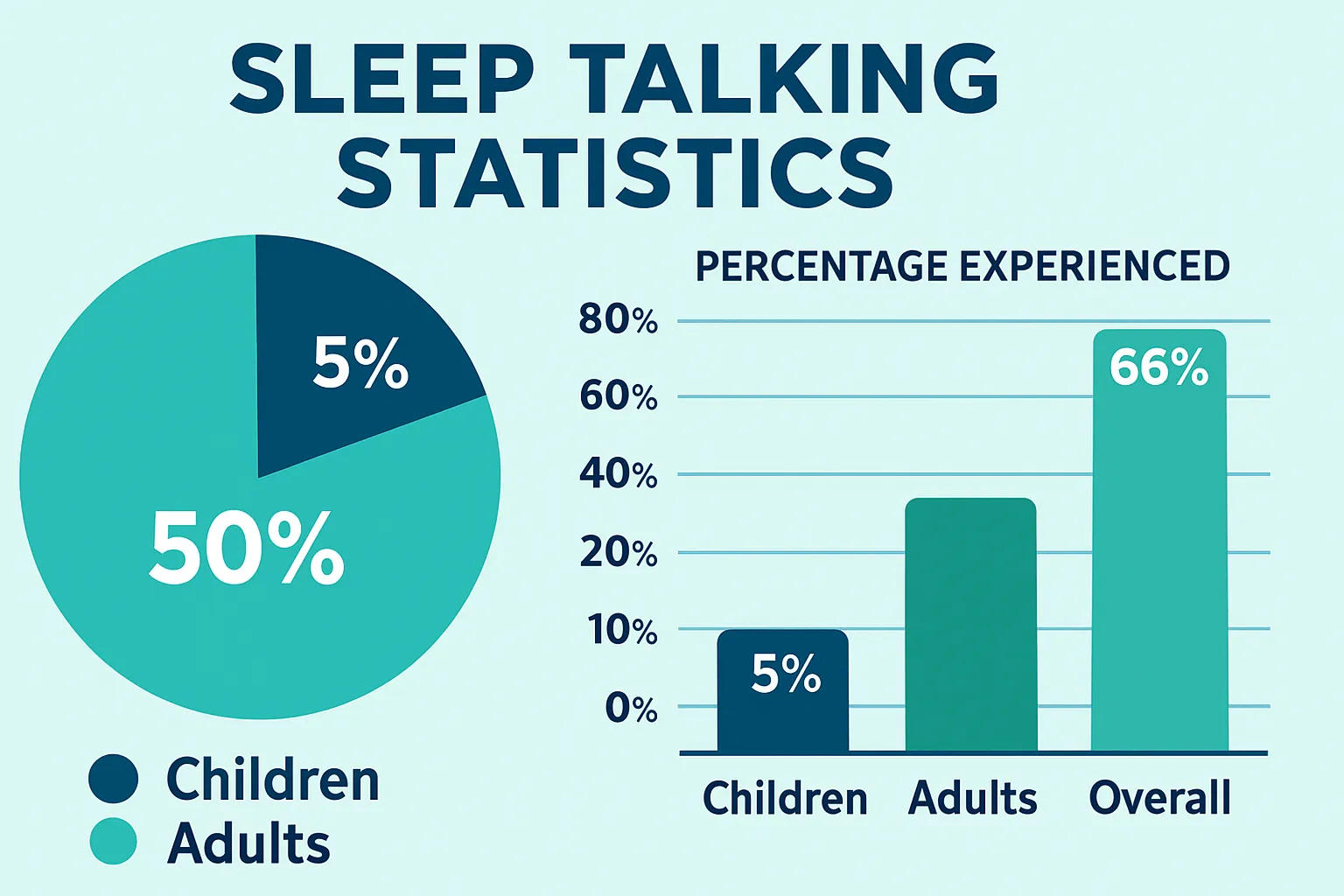Nighttime Secret Conversations: Unveiling the Mystery of Sleep Talking
Published by Dr. Emily Parker | Clinical Sleep Psychologist
In the quiet of the night, when the world falls into slumber, some people engage in a special kind of "conversation." They sometimes murmur to themselves, sometimes speak passionately, as if communicating important secrets with invisible listeners. This is the mysterious phenomenon we explore today—sleep talking.
The Unconscious Nighttime Performers
Sleep talking, medically known as "somniloquy," is a phenomenon where people unconsciously make sounds or speak while asleep. These nighttime "performers" are usually completely unaware of their behavior, like actors in a play they don't even know they're performing.
Surprisingly, this phenomenon is more common than we might imagine. Research shows that approximately two-thirds of people experience sleep talking at some point in their lives. Among children, this proportion reaches as high as 50%, while about 5% of adults regularly talk in their sleep. This means that if you've never spoken in your sleep, you're actually in the "minority."
The Brain's Night Shift
So what causes our brains to still "speak" when they should be resting? The answer lies within our complex nervous system.
When we enter sleep, the brain doesn't completely "shut down." Instead, it switches to something like a "night shift mode." In this mode, brain regions controlling language and muscle activity are usually suppressed to ensure we rest quietly. However, sometimes this suppression mechanism isn't perfect, and some brain regions may maintain a certain level of activity.
This is like a computer suddenly running a program while in standby mode—the brain regions responsible for language are accidentally "activated," causing us to speak in our sleep. This phenomenon can occur during any sleep stage, whether deep sleep or REM sleep.
The Diverse Manifestations of Sleep Talk
Sleep talking manifests in countless bizarre ways. Some people only softly mumble a few unclear syllables, while others engage in complete conversations, even pausing as if waiting for a response. Interestingly, research has found that about half of sleep talking content is incomprehensible, while the other half, though understandable, often lacks logical coherence.
It's worth noting that sleep talking is not a "truth serum." Those who worry about revealing secrets in their dreams can rest easy—sleep talk content is usually random and meaningless, with no direct connection to real thoughts or experiences.
Who's More Likely to Become "Nighttime Speakers"
While anyone can talk in their sleep, certain factors increase the likelihood of this phenomenon:
Genetic Predisposition: If your parents or siblings have sleep talking habits, you're more likely to become a "nighttime speaker." This suggests genetic factors play an important role.
Age Factors: Children are more prone to sleep talking than adults. This is mainly because children's brains are still developing, and the mechanisms controlling sleep-wake state transitions aren't yet mature.
Life Stress: Anxiety, stress, and sleep deprivation can all increase the frequency of sleep talking. The increasingly fast pace of modern life also explains why sleep talking remains quite common among adults.
Environmental Factors: Jet lag, irregular sleep schedules, and changes in sleep environment can all trigger sleep talking episodes.
Should We Be Concerned?
For most people, occasional sleep talking is completely normal and doesn't require excessive worry. This phenomenon usually doesn't affect sleep quality and poses no health threats. However, if sleep talking is accompanied by other symptoms such as sleepwalking, night terrors, or excessive daytime sleepiness, professional medical evaluation may be needed.
Those most affected by sleep talking are often family members or partners sleeping in the same room. For them, being awakened by unexpected "speeches" in the middle of the night is indeed troublesome. However, the good news is that most sleep talkers don't speak too loudly, and episodes are usually brief.
A Fascinating Nighttime Phenomenon
Sleep talking reminds us how complex and amazing the human brain is. Even when we think we're completely unconscious during sleep, the brain continues various activities, sometimes creating such interesting phenomena.
Next time you hear someone talking in their sleep, consider it a small episode of the brain's night shift work. While we may never fully understand all the mysteries of sleep talking, this phenomenon certainly provides us with a unique window into understanding the nature of sleep and consciousness.
In today's advancing scientific world, research on sleep talking continues. Perhaps one day we'll be able to better understand these nighttime "secret conversations," even learning to communicate better with our dream world. Until then, let's maintain our curiosity about this mysterious phenomenon and enjoy these occasional "surprises" that drift through the night.
Related Articles
- Talking in Your Sleep? Here’s Why It Happens, How a Sleep Tracker Monitors It!
- What Causes Sleep Talking? Medical Insights & Prevention
- How to Stop Sleep Talking: Expert Tips & Solutions

